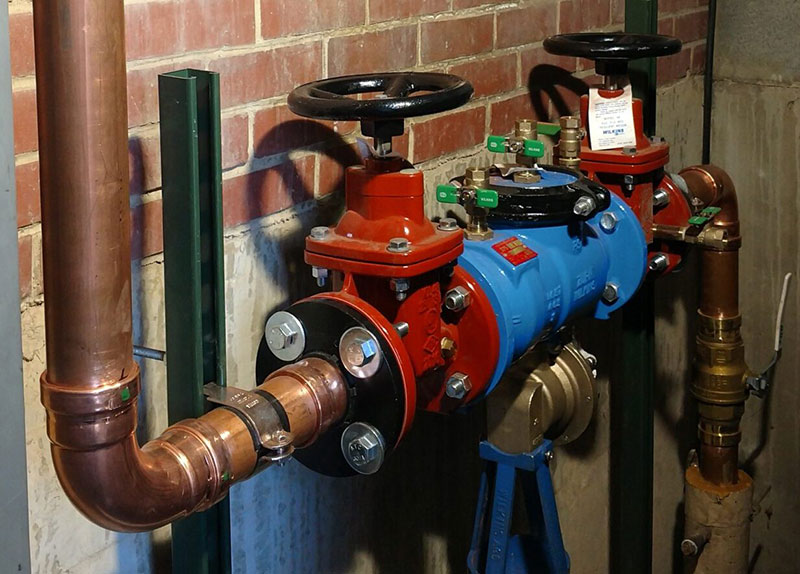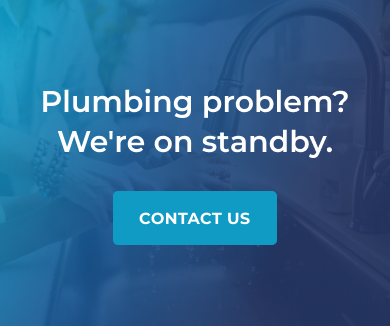
What is Backflow Testing? A Comprehensive Guide to Protecting Your Water Supply
Jan 21, 2025
Your water system works hard to pump clean, safe water into your home and keep contaminants out. Water pressure usually plays a key role in this process by directing the water through filtration and disinfection systems, and then pushing it on through your pipes. However, if something goes wrong, the water may reverse course or not flow properly away from potential contaminants. This mishap is often called backflow. When it happens, it can threaten water quality, pose health risks to consumers and cause other problems.
The good thing is that backflow is preventable and fixable. However, you have to know that it’s happening, which is why backflow testing is an essential part of water system upkeep. Let’s discuss more about backflow and the importance of backflow testing with CK’s Plumbing and Backflow.
What is Backflow?
Backflow is very much what it sounds like. It occurs when the flow of water in your pipes reverses or flows backward. Often, it occurs due to changes in water pressure. During backflow, the water may be exposed to contaminants like bacteria, debris and chemicals that would ordinarily be removed. Therefore, backflow can cause significant health and safety risks if left unaddressed. As a result, homeowners, property managers and business owners should all include backflow testing and prevention as part of their regular water system maintenance. Many community water systems even require homes and businesses to install backflow prevention devices and conduct regular testing.
Common Types of Backflow Prevention Devices
- Double Check Valve Assemblies (DVCAs): These systems have two, one-way check valves that supply water to your pipes. Using these valves is like using a door that only opens outward. If water tries to flow backward, the valves spring closed and the water cannot go back the way it came.
- Reduced Pressure Zone (RPZ) Valves: RPZ systems have two one-way valves but include a “relief valve” in the middle. If water pressure drops or flow reverses, the relief valve opens to remove potentially contaminated water.
- Pressure Vacuum Breakers (PVBs): These devices use one check valve and one air inlet valve. Both valves stay closed when water flows normally. However, if backflow occurs, the air inlet valve opens to stop any suction that may be pulling the water back. These systems are used in plumbing that is under constant pressure.
- Atmospheric Vacuum Breakers (AVBs): AVB systems are much like PVB systems. However, they are a bit simpler and can only be used in systems that have non-continuous water pressure (like your kitchen faucet).
CK’s Plumbing and Backflow exclusively use the latest Zurn Backflow products in all our work. These high quality systems ensure strong contamination prevention and accurate, reliable testing results.
Why is Backflow Testing Important?
It’s important to test, monitor and service your backflow systems regularly. After all, doing so can come with a variety of benefits in areas such as:
- Health & Safety: By preventing water reversal, you’ll help keep clean water from being exposed to various contaminants, bacteria and other dangerous materials.
- Legal Compliance: Various federal, state and local water regulations may require you to install a backflow system and regularly test it. Having one makes sure you obey the law.
- Property Protection: Contaminated water entering your home may cause many problems, such as pipe corrosion, limescale buildup and appliance damage. The cleaner your water, the less the risk of this problem may be.
Perhaps most importantly, a properly functioning backflow prevention system provides peace of mind. Regular testing and maintenance may help ensure you catch and repair backflow problems before they become worse.
How Does Backflow Testing Work?
During backflow testing, your service professional will carefully check your system for problems. While all processes vary, they usually involve various steps, such as:
- Inspecting backflow prevention devices to ensure they are functioning optimally and not damaged.
- Testing your water pressure to ensure proper water flow. If there is low pressure, this is a sign that you may have a backflow problem.
- Identifying potential issues within your water system. For example, foul smelling water, discoloration, or poor drainage may all indicate backflow (or another issue).
- Documenting your problem and making recommendations for how to fix the problem.
How Often Should You Test for Backflow?
Although regulations differ, many homes and businesses should have their backflow systems tested at least once a year. Some are even required to do so. For example, the City of Durham, NC requires annual backflow testing for virtually all residents who consume water from the city’s system.
How to Know if Your Property Needs Backflow Testing
Naturally, if your city or municipality has mandatory backflow testing, you will need to schedule service at the required intervals. However, there are other times you might want to conduct backflow testing on your water, too. For example, if you notice changes in water pressure or water quality, this may be a sign that you have a backflow problem. Additionally, if you have significant plumbing repairs or install a new backflow prevention system, you will likely want to schedule testing not long afterward. Doing so can ensure everything is working properly. Otherwise, scheduling backflow testing annually is a good rule of thumb to get into a regular rhythm.
Trust CK’s Plumbing for Your Backflow Testing Needs
CK’s Plumbing & Backflow is Raleigh and the Triangle’s trusted partner for all their water service needs. When it comes to backflow prevention and testing, you know you are getting the best when you come to us. Our team comprises certified professionals who are experts in all things backflow, and we guarantee thorough and competent service every time. Don’t wait to take care of your plumbing. Request an estimate today!

